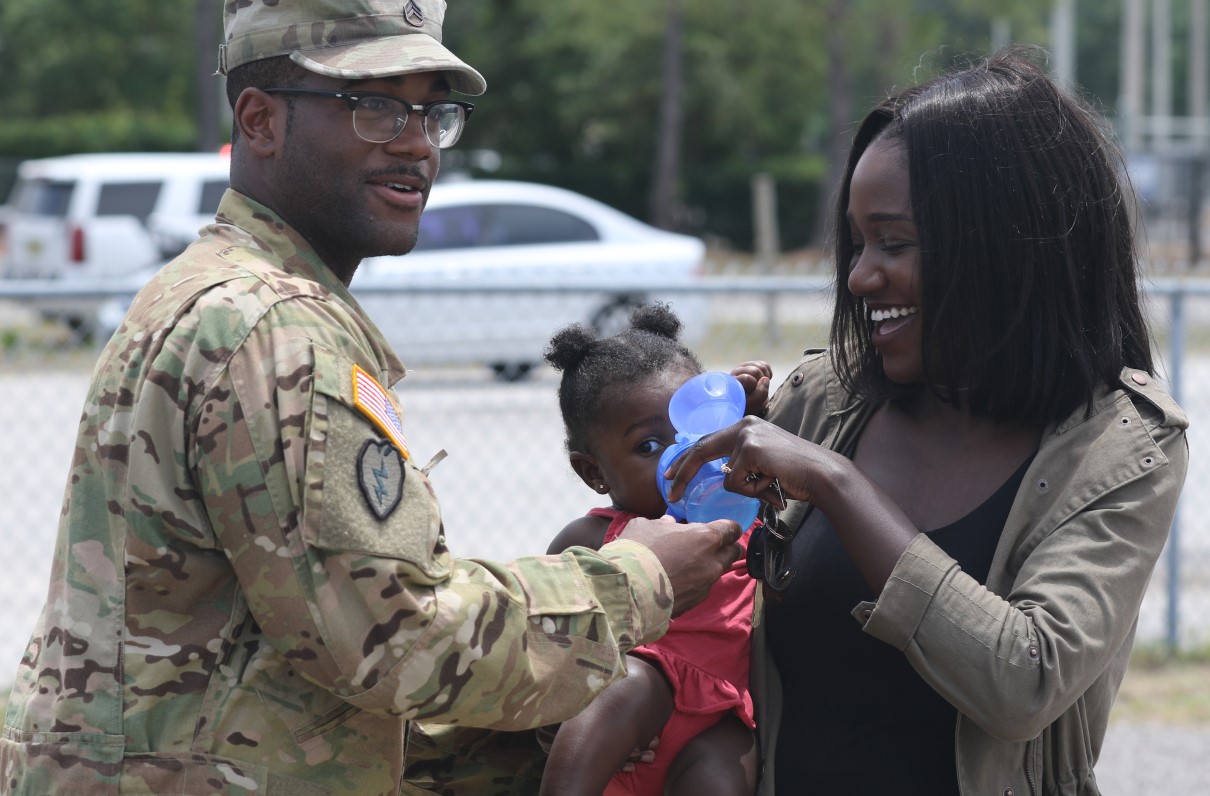The findings of an ongoing DoD survey of reserve component spouses will help the department and organizations like MOAA ensure programs, policies, and advocacy efforts are designed with the needs of these families in mind.
The 15-minute survey, open to 50,000 randomly selected reserve component spouses, is the first of its kind since the start of the COVID-19 pandemic. Questions will cover a broad range of topics, including the impact of the pandemic, employment, activations, deployments, and food security. Spouses can visit https://dodsurveys.mil and enter their military ID number to determine whether they were selected for participation.
The 2019 Reserve Component Spouses Survey (RCSS) found more than half of spouses (61%) were satisfied with the National Guard/Reserve lifestyle, and 6 in 10 spouses favored their partner staying in uniform. Unlike their active duty counterparts, this statistic has remained steady since 2009. In Active Duty Spouse Surveys (ADSS) since 2012, the number of spouses satisfied with military life has steadily declined, especially in the junior enlisted and dual military subcategories. Marine Corps spouses, spouses of servicemembers in the E-1 to E-4 and O-1 to O-3 grades, and male spouses all report higher rates of desire to leave the military.
[RELATED: Currently Serving Members and Spouses: Empower Your Voice With MOAA]
Results of the 2019 RCSS showed a reserve component spouse unemployment rate of 7%, statistically unchanged since 2014. This seems positive when compared with the active duty spouse unemployment rate (22%), but it is still nearly double the national average (3.6%). MOAA would like to see the survey dig deeper into the specific challenges reserve components spouses face when it comes to finding and maintaining gainful employment.
“The Reserve Component Spouse Survey is an important way for spouses to be heard,” said Patricia Montes Barron, deputy assistant to the secretary of defense for the office of Military Community and Family Policy. “Military leadership relies on the insights from this survey to understand pressing needs and determine the resources required to improve the quality of life for reserve families.”
[RELATED: MOAA President Outlines Key Priorities for New House Quality of Life Panel]
MOAA is committed to improving quality of life for all uniformed servicemembers, veterans, families, caregivers, and survivors. Results from surveys like this help MOAA improve and prioritize policies, programs, and resources for our reserve component families.
Support Military Spouses
Donate to The MOAA Foundation and support MOAA’s efforts to help military spouses in their career journeys.

